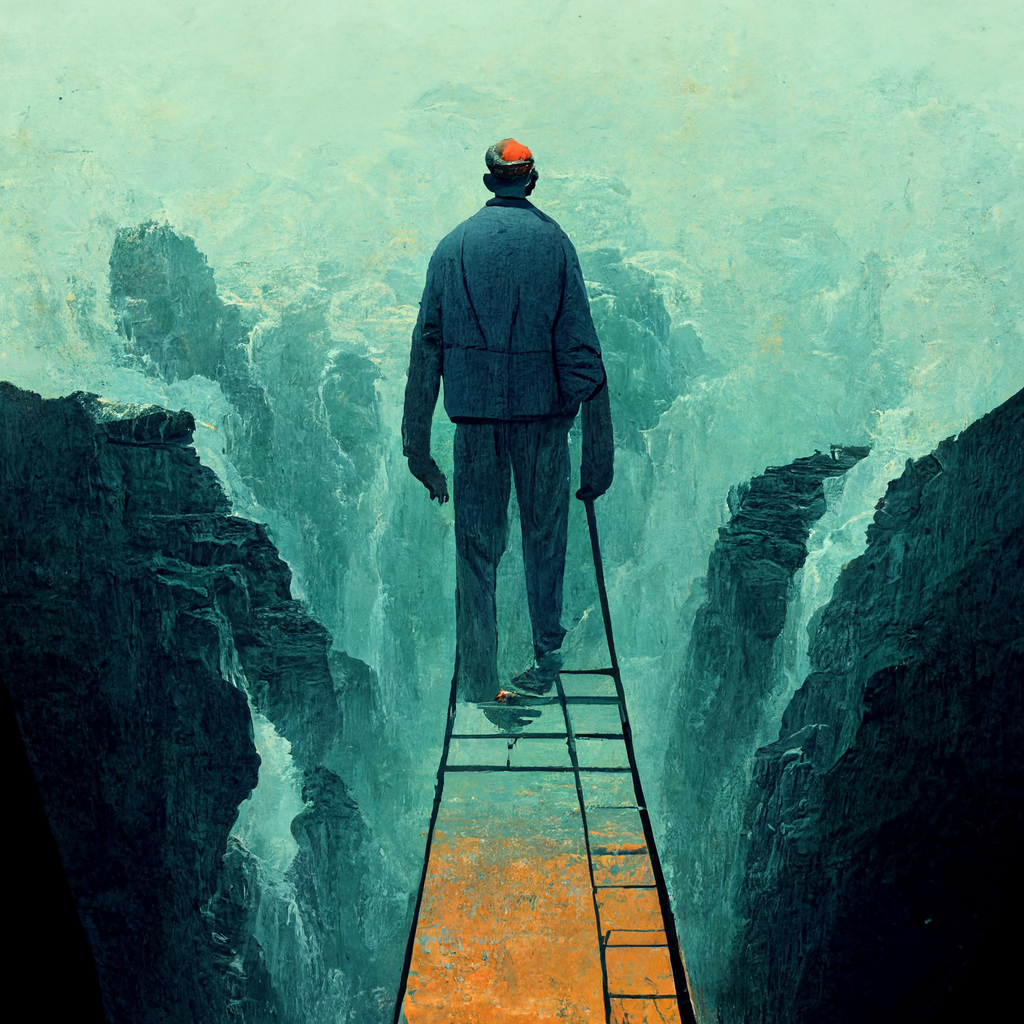THE PEOPLE OF THE PIT (3)
By:
August 13, 2022

HiLoBooks is pleased to serialize A. Merritt’s 1918 proto-sf story “The People of the Pit” for HILOBROW’s readers. Merritt’s yarn — an early example of “weird” fiction, which appeared in All-Story Weekly — destabilizes Enlightenment assumptions about the knowability of the universe, suggesting there are worlds here on Earth that lie beyond our understanding.
ALL INSTALLMENTS: 1 | 2 | 3 | 4 | 5 | 6 | 7 | 8 | 9.
We stared at him. “The people of the pit,” he said. “Things that the Devil made before the Flood and that somehow have escaped God’s vengeance. You weren’t in any danger from them — unless you had followed their call. They can’t get any further than the blue haze. I was their prisoner,” he added simply. “They were trying to whisper me back to them!”
Anderson and I looked at each other, the same thought in both our minds.
“You’re wrong,” said the crawling man. “I’m not insane. Give me a very little to drink. I’m going to die soon, but I want you to take me as far South as you can before I die, and afterwards I want you to build a big fire and burn me. I want to be in such shape that no infernal spell of theirs can drag my body back to them. You’ll do it too, when I’ve told you about them —” he hesitated. “I think their chain is off me?” he said.
“I cut it off,” I answered shortly.
“Thank God for that too,” whispered the crawling man.
He drank the brandy and water we lifted to his lips.
“Arms and legs quite dead,” he said. “Dead as I’ll be soon. Well, they did well for me. Now I’ll tell you what’s up there behind that hand. Hell!”
“Now listen. My name is Stanton — Sinclair Stanton. Class 1900, Yale. Explorer. I started away from Dawson last year to hunt for five peaks that rise like a hand in a haunted country and run pure gold between them. Same thing you were after? I thought so. Late last fall my comrade sickened. Sent him back with some Indians. Little later all my Indians ran away from me. I decided I’d stick, built a cabin, stocked myself with food and lay down to winter it. In the Spring I started off again. Little less than two weeks ago I sighted the five peaks. Not from this side though — the other. Give me some more brandy.
“I’d made too wide a detour,” he went on. “I’d gotten too far North. I beat back. From this side you see nothing but forest straight up to the base of the Hand Mountain. Over on the other side —”
He was silent for a moment.
“Over there is forest too. But it doesn’t reach so far. No! I came out of it. Stretching miles in front of me was a level plain. It was as worn and ancient looking as the desert around the ruins of Babylon. At its end rose the peaks. Between me and them — far off — was what looked like a low dike of rocks. Then — I ran across the road!
“The road!” cried Anderson incredulously.
“The road,” said the crawling man. “A fine smooth stone road. It ran straight on to the mountain. Oh, it was road all right — and worn as though millions and millions of feet had passed over it for thousands of years. On each side of it were sand and heaps of stones. After a while I began to notice these stones. They were cut, and the shape of the heaps somehow gave me the idea that a hundred thousand years ago they might have been houses. I sensed man about them and at the same time they smelled of immemorial antiquity. Well —
“The peaks grew closer. The heaps of ruins thicker. Something inexpressibly desolate hovered over them; something reached from them that struck my heart like the touch of ghosts so old that they could be only the ghosts of ghosts. I went on.
“And now I saw that what I had thought to be the low rock range at the base of the peaks was a thicker litter of ruins. The Hand Mountain was really much farther off. The road passed between two high rocks that raised themselves like a gateway.”
The crawling man paused.
“They were a gateway,” he said. “I reached them. I went between them. And then I sprawled and clutched the earth in sheer awe! I was on a broad stone platform. Before me was — sheer space! Imagine the Grand Canyon five times as wide and with the bottom dropped out. That is what I was looking into. It was like peeping over the edge of a cleft world down into the infinity where the planets roll! On the far side stood the five peaks. They looked like a gigantic warning hand stretched up to the sky. The lip of the abyss curved away on each side of me.
RADIUM AGE PROTO-SF: “Radium Age” is Josh Glenn’s name for the nascent sf genre’s c. 1900–1935 era, a period which saw the discovery of radioactivity, i.e., the revelation that matter itself is constantly in movement — a fitting metaphor for the first decades of the 20th century, during which old scientific, religious, political, and social certainties were shattered. More info here.
SERIALIZED BY HILOBOOKS: James Parker’s Cocky the Fox | Annalee Newitz’s “The Great Oxygen Race” | Matthew Battles’s “Imago” | & many more original and reissued novels and stories.
